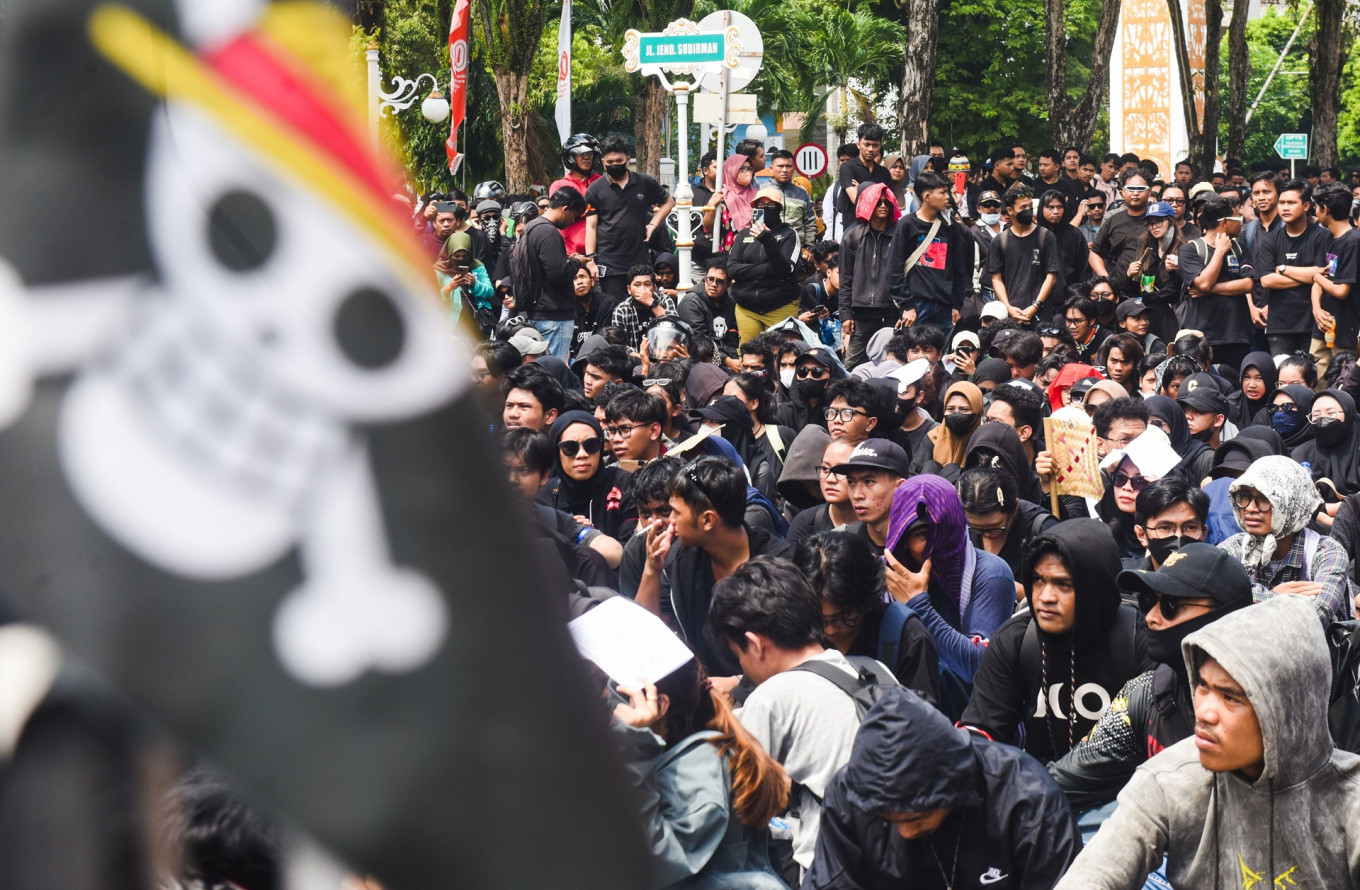Popular Reads
Top Results
Can't find what you're looking for?
View all search resultsPopular Reads
Top Results
Can't find what you're looking for?
View all search resultsPlaying devil’s advocate: In defense of centralization
The argument at the heart of the mass protests that erupted in late August isn't centralization versus democracy, but the credibility and trustworthiness of state institutions.
Change text size
Gift Premium Articles
to Anyone
T
here has been a global consensus movement toward the political right in the past few years in the United States, Argentina, Italy, France and Germany, even in Thailand and Indonesia. This right-wing shift is a sudden about-face from the previous movement toward the left that had grown consistently for decades and suggests a systemic change among the public, perhaps fueled by rising uncertainty sparked by global events like the COVID-19 pandemic, the Russia-Ukraine war, the Israel-Palestine conflict and rising polarization.
Examining the media landscape reveals that most outlets still lean progressive, advocating for left-of-center issues: reduced hierarchy, environmental protection and free trade. Metaphorically speaking, the media seems to record events with a camera from the left angle, even as its subjects have been drifting to the right.
Zooming in on Indonesia, this phenomenon holds true. The mass public voted for a candidate who promotes greater centralization, while the media seems to view centralization with trepidation. This suggests the media may be amplifying the voice of a more educated segment; those cultured enough to observe political dynamics, read books on weekends and possess critical reasoning skills.
If we ask people on the street, they likely prefer decisive governance to more choices because more choices mean greater uncertainty, the one thing they already have in abundance. They need someone who dares to assume the responsibility of securing them a livable future.
While the media protests increased militarization, the people who touch grass are competing to apply to become military officers, a job that brings pride to the family and secures retirement benefits. There appears to be a gap between what the media argues and what the majority of the people think, a cohort that includes 66.5 percent of each age group who, by choice or circumstance, do not even enroll in high school (Statistics Indonesia, 2024).
With increased centralization comes concern for democracy, a well-founded one that is rooted in the quest to safeguard liberty and counterbalance ruling power.
But there is a catch. True liberty of choice is paradoxical, as it requires first forgoing the liberty to be uninformed. To achieve this liberty, an individual must be knowledgeable of the available choices and capable of reason, which necessitates voluntarily ceding some degree of immediate liberty.



















